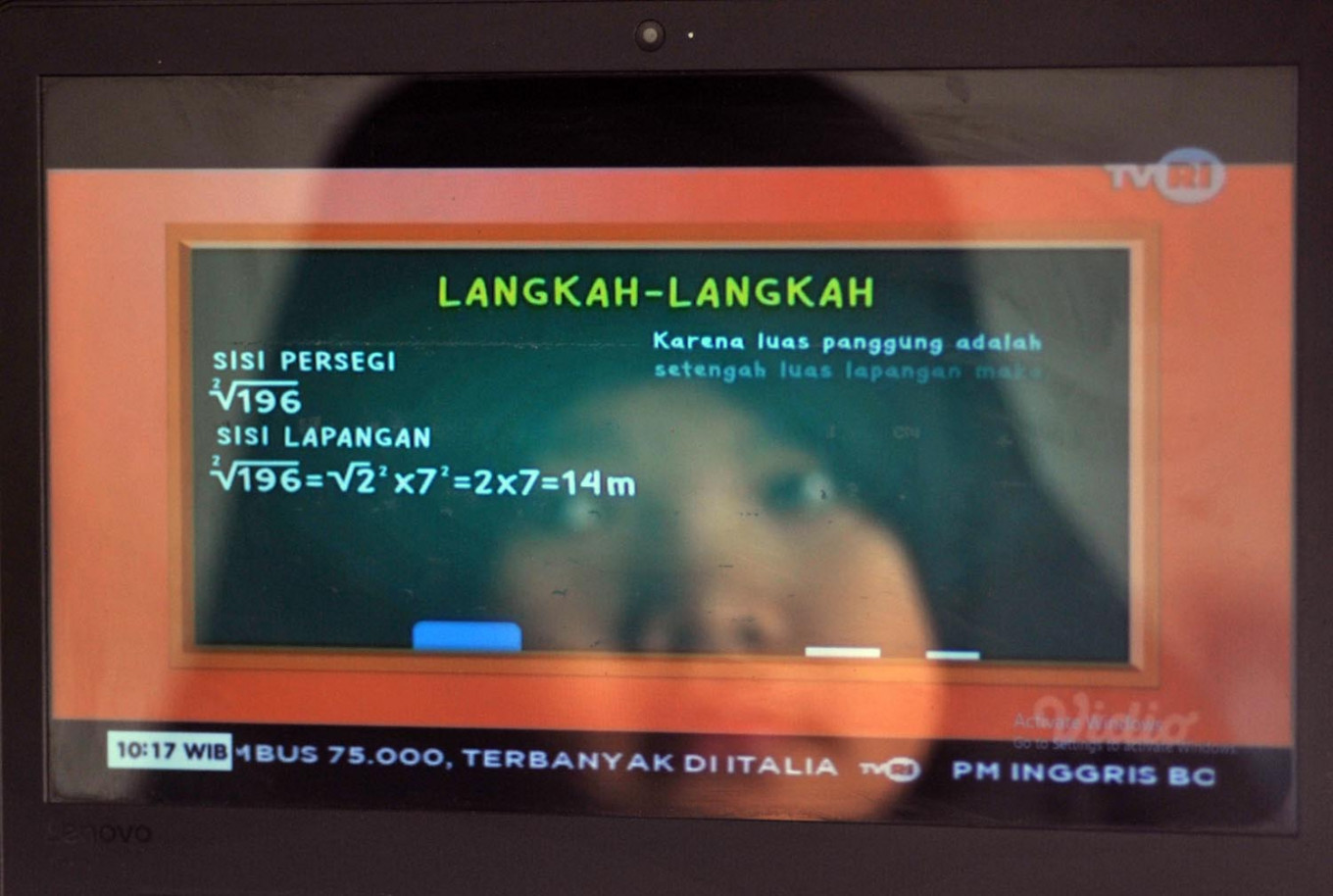Life without internet: Bornean students learn by radio during pandemic
One school is cooperating with national radio broadcaster RRI to provide an hour-long educational program for which teachers provide the content.
Change Size
 A student watches a math lesson broadcast by TVRI in her home in Padang, West Sumatra. (Antara/Iggoy el Fitra)
A student watches a math lesson broadcast by TVRI in her home in Padang, West Sumatra. (Antara/Iggoy el Fitra)
E
lementary school teachers in Sanggau regency, West Kalimantan, an Indonesian province on the island of Borneo that borders Malaysia, are using state radio broadcasts by RRI to reach students in their homes during the COVID-19 pandemic.
“We have various geographic conditions here in Sanggau. Not all areas have internet,” Titis Kartikawati, a teacher, said in a video conference on National Education Day on May 2. She said many areas had “blank spots”, a term used to describe places that don’t have access to internet.
Schools nationwide have been closed since March 15, and students have been instructed to learn from home to contain the spread of the coronavirus. Students who live in areas where the internet is readily accessible learn from their teachers through virtual meetings or recorded videos. In addition, the Education and Culture Ministry has cooperated with state broadcasting company TVRI to offer television lessons. But those without internet, electricity or TV require an alternative.
Titis’ school is using radio instead. The school is cooperating with national radio broadcaster RRI to provide an hour-long educational program for which the teachers provide the content.
“From Monday to Friday, we take turns. The teachers give all the material [through the broadcast],” she said, as quoted by Antara news agency. She said all the students were able to access the radio broadcasts and teachers were able to spend less money because they did not have to buy additional internet data to cover internet uploads.
She said the students’ parents were from low-income families working in agriculture and would find it difficult to purchase internet data.
Hamid Muhammad, acting director general of early childhood, elementary and middle education, said teachers had to be creative when dealing with internet or electricity limitations.
“We have to think about children who do not have internet, electricity or television. Several areas use community radio. This is the moment when teachers have to innovate,” he said in a press conference on Saturday.









